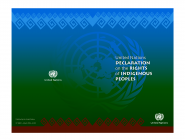The Aid and Relief Department
Since the establishment of the Society in 1991, the Aid Department participated greatly in relieving the agony of our people, particularly the most remote villages. Forming specialized mobile health units, the Aid Department performed regular visits to the villages most in need of health and medical care. These units investigated the different areas and provided medicine and health services at no cost to the poor villagers.
The Society foresaw the urgent need for constructing health centers in cities and towns, and to provide pharmaceutical and medical services at little or no cost. The charity clinic of our society in Duhok city center had a great role in providing medicine and treatment for all the people of Duhok regardless of their religion or ethnicity, in difficult times characterized by the scarcity of medicine.
It was the same with the charity clinics in Ankawa, Shaqlawa, Zakho and Sersink, some of which are still providing humanitarian services after the liberation 2003. This Department participated greatly in providing help, aid, and support in performing many great relief programs. A few days before the start of theSecond Gulf War a great number of families fled from big cities like Baghdad, Musol and Kirkuk, fleeing to the mountains and villages in north Iraq. Medical units were formed for visiting and investigating the affairs of these refugee families in different cities and villages, providing the necessary services so desperately needed in the winter.
At the liberation of our cities and villages in the Nineveh plain, our relief and medical units were the first to provide help for our people in Baghdeda, Alkush, Teleskof, Barttela, Caremles, Batnaya, and all other villages.
After the liberation was achieved and some stability was achieved in the Nineveh plain, our Department started immediately to build charity clinics similar to those in Duhok and Erbil.
We now have a charity clinic in Alkush, Baghdeda, and Barttela. We look forward to opening similar clinics in other regions. These clinics provide people of the area with its health services at little or not cost to them.Those clinics have a direct humanitarian role in relieving the suffering of our people, particularly the most needy ones.



